McGill faculty development workshops focus on simulation training
By Diane Weidner, Steinberg Centre for Simulation and Interactive Learning
In an era of growing complexity in health care practice, simulation allows health professionals to develop clinical, procedural and surgical skills in a safe, technologically-enhanced environment. Over the past 11 years, the Steinberg Centre for Simulation and Interactive Learning (SCSIL) at McGill’s Faculty of Medicine has hosted over 150,000 learner visits designed to enhance professional training and ultimately lead to better patient outcomes and satisfaction. To ensure that current and future health care professionals are well trained, have the appropriate knowledge, and are able to work as successful members of a team, the Centre relies on dedicated faculty to develop and deliver these highly successful educational activities.
This fall, the Sim FacDev Collaborative—the McGill Faculty Development Office, in collaboration with SCSIL—offered two practical simulation-based workshops to support McGill faculty members with the development and integration of simulation-based educational activities into their curriculum.
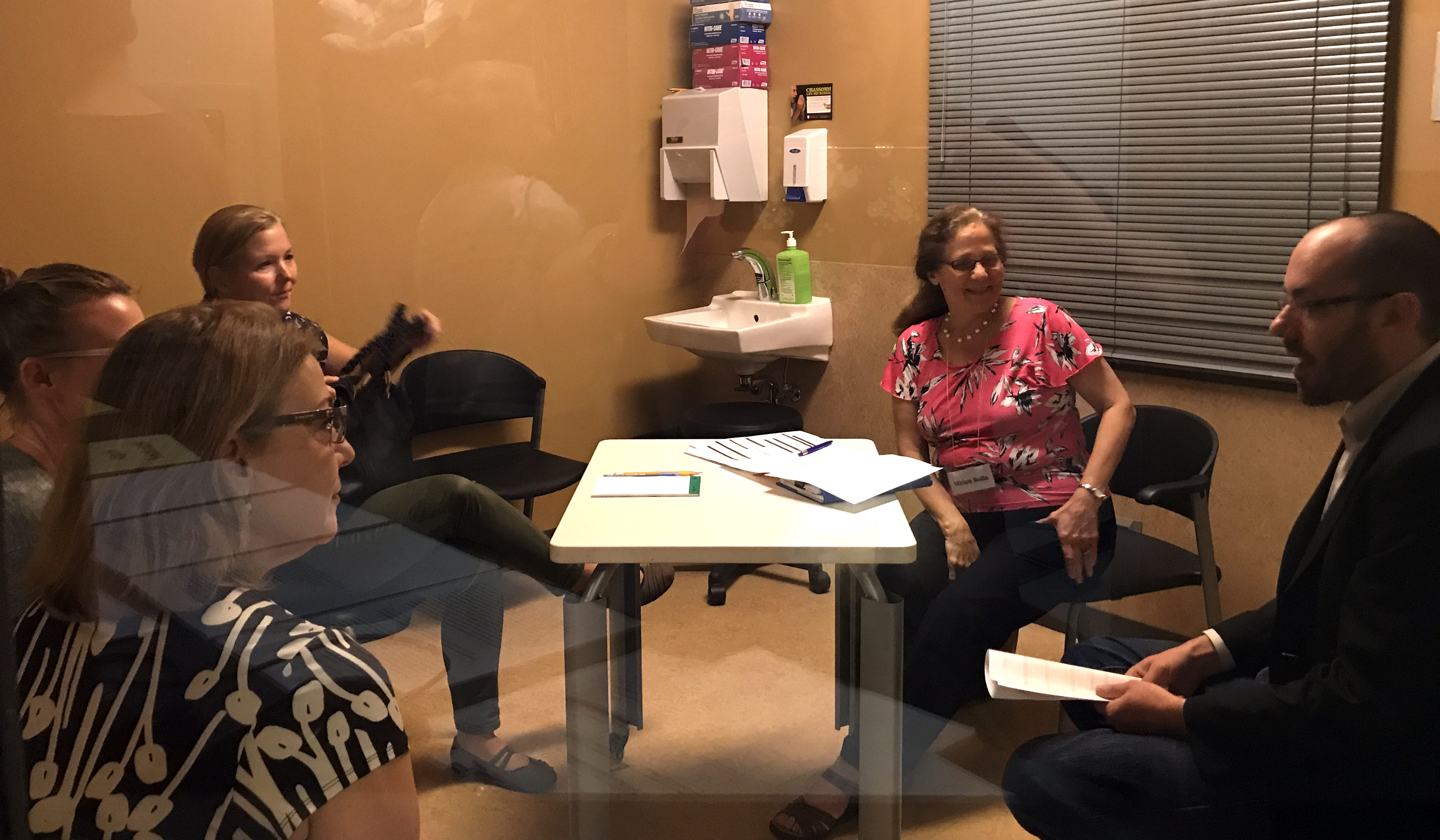
The first half-day workshop, “Feedback and Debriefing in Simulation-Based Education: From Principles to Practice”, took place on September 19 and was designed for instructors with limited formal training in simulation-based education. It provided information on the principles of effective debriefing sessions and offered opportunities to practice these skills with experienced simulation educators.
A second full-day workshop, “Introducing Simulation into Your Curriculum: From Principles to Practice”, took place on November 23. The program provided participants with a foundational background of “how people learn” and covered key elements of the theory behind simulation-based education, along with evidence to support the use of simulation-based education in practice. Participants learned how to implement deliberate practice into their educational activities and practiced debriefing activities to hone their skills.
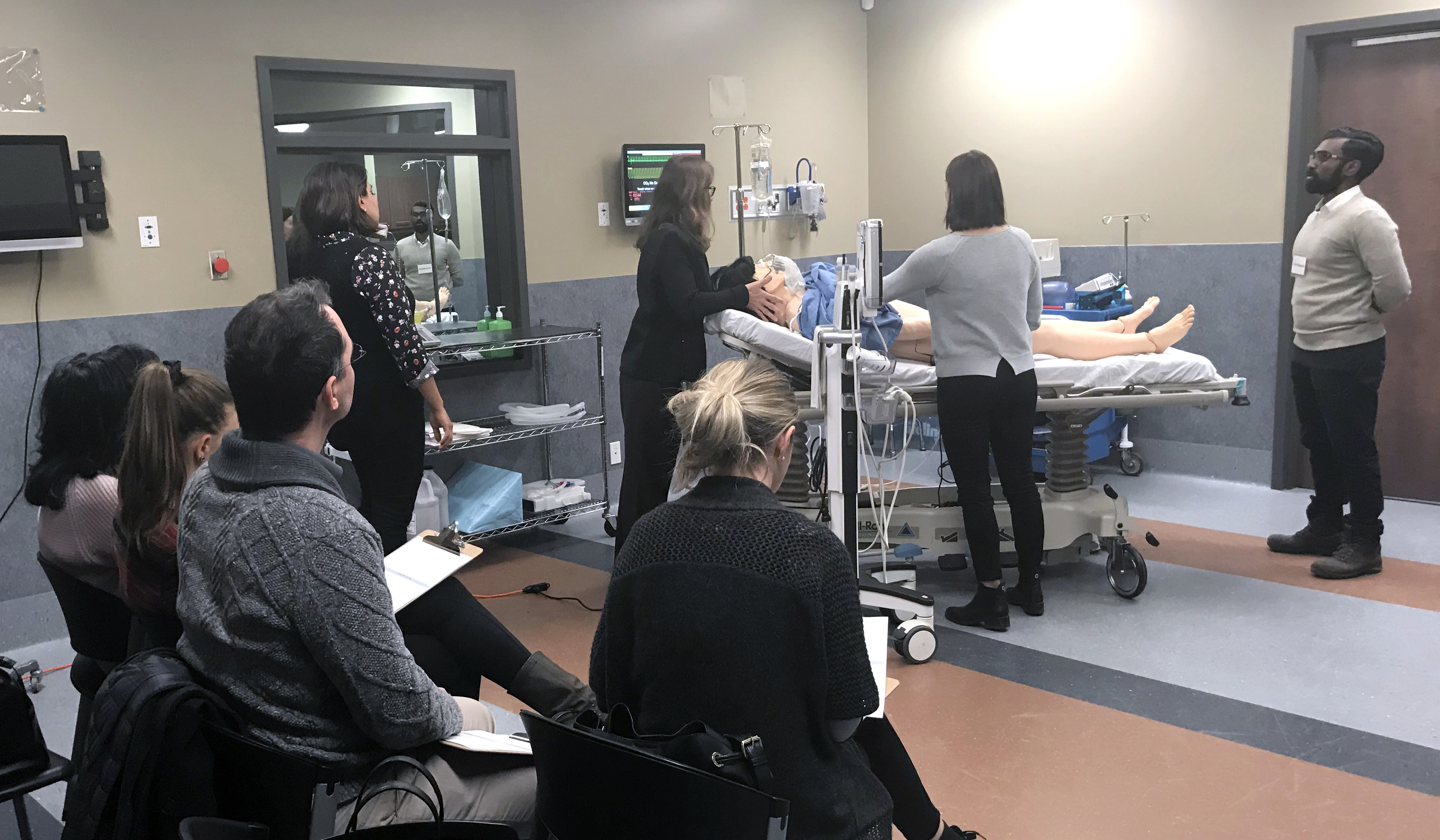
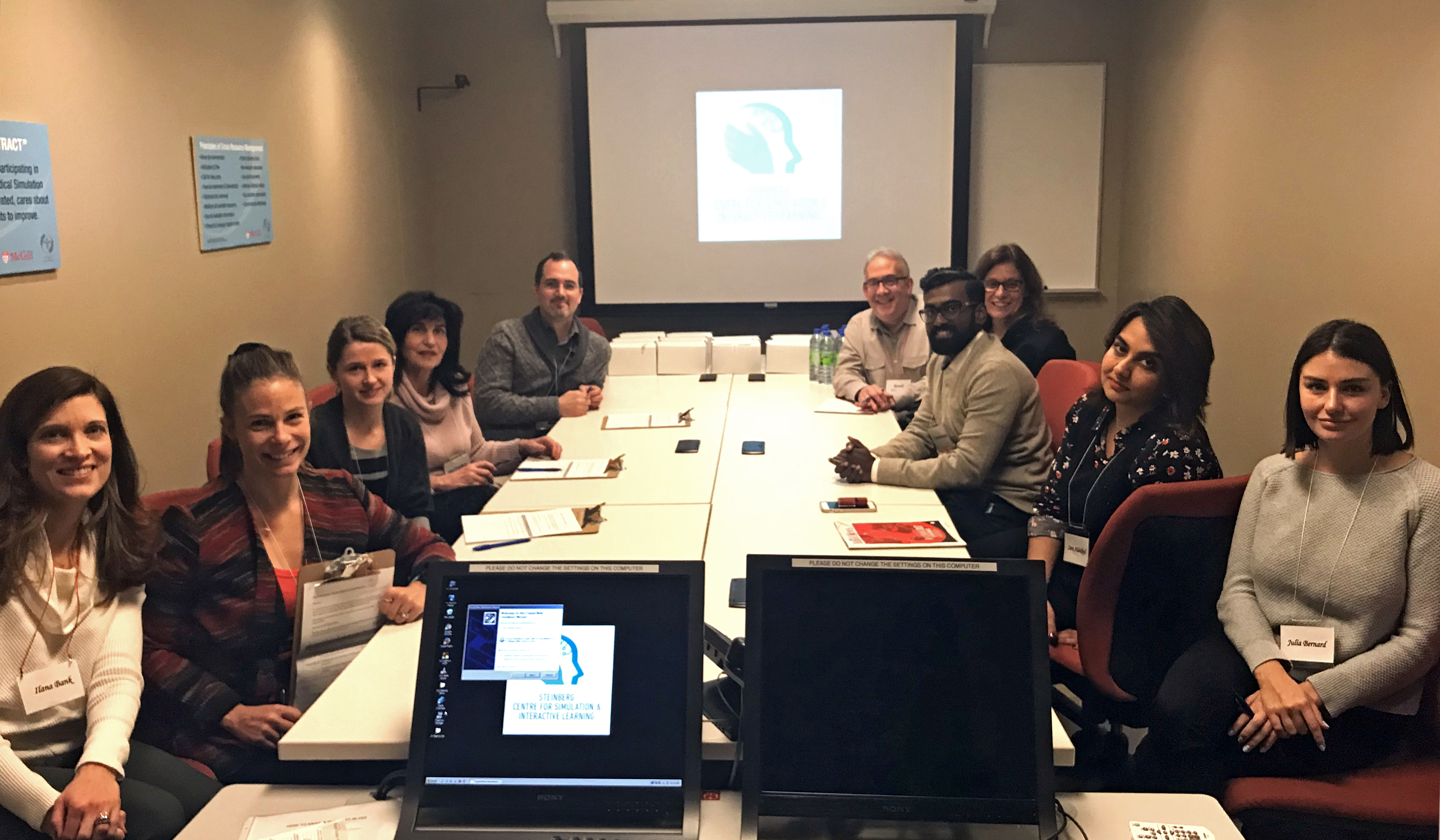
Both workshops were well attended by faculty representing a diverse, interprofessional audience from the McGill Schools of Medicine, Nursing, Occupational and Physical Therapy, Communication Sciences and Disorders, Human Nutrition, Anatomy and Cell Biology, and Food Sciences. Based on the feedback received, participants enjoyed the interactive, hands-on nature of the workshop and appreciated having the opportunity to network and share thoughts and ideas with other professionals who share an interest in simulation-based education.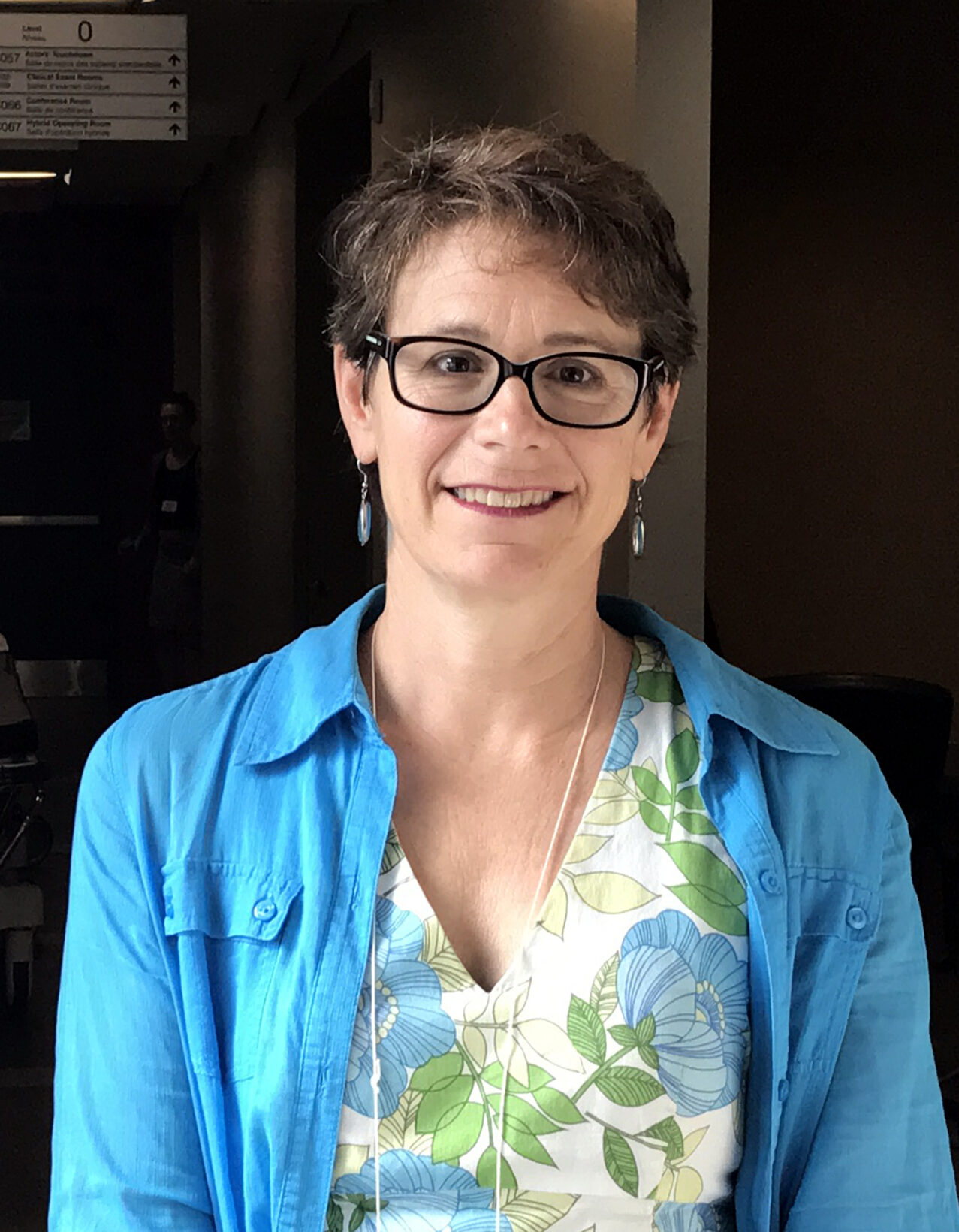
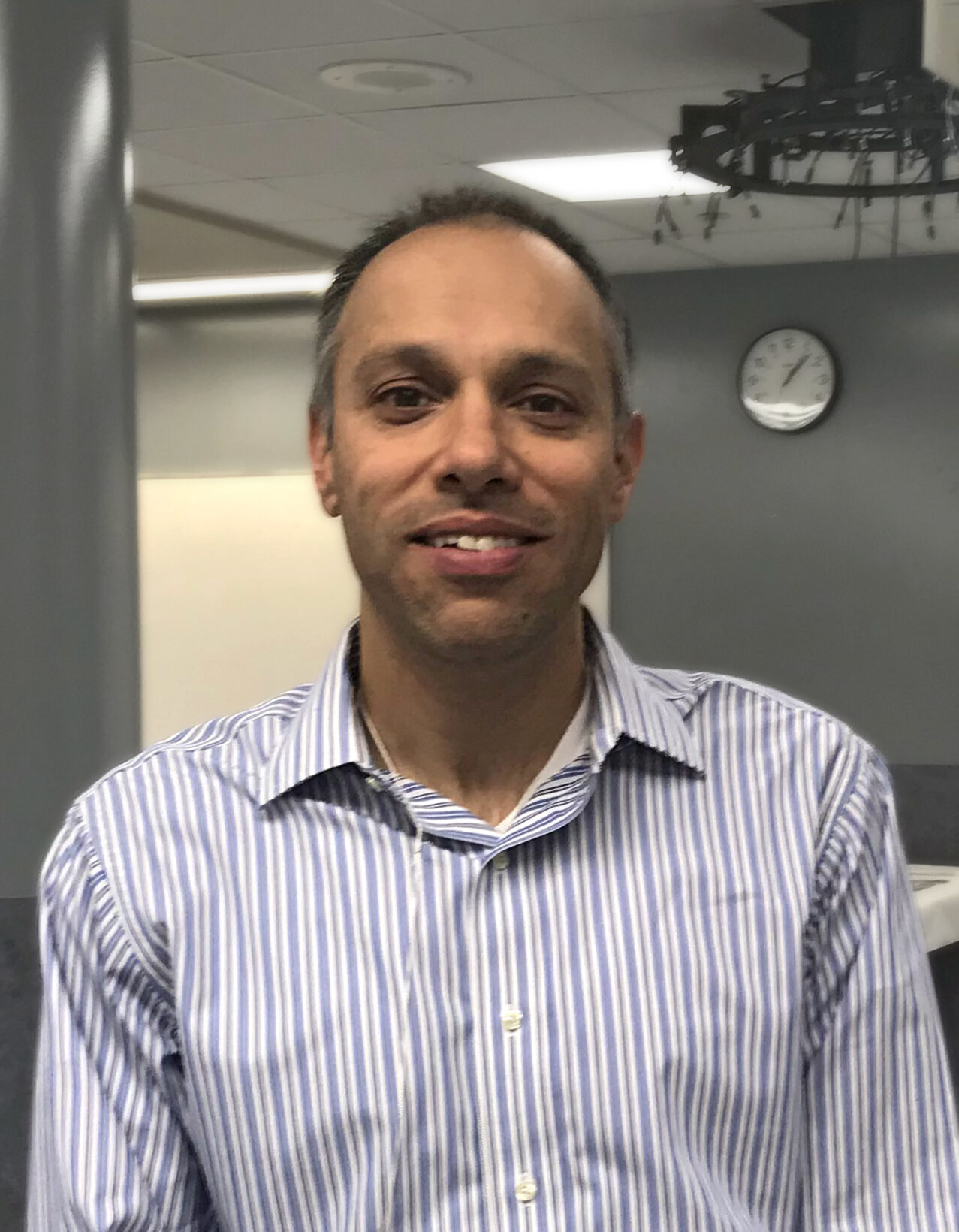 enhanced the learning, because we’re actually doing and practicing what we’re going to be teaching.”
enhanced the learning, because we’re actually doing and practicing what we’re going to be teaching.”The full-day workshop allowed Mohan Radhakrishna, Orthopedic Surgeon and Associate Professor in Physical Medicine and Rehabilitation, to gain some formal knowledge in simulation that he is keen to incorporate into future simulation sessions with students, residents and staff physicians. He practiced debriefing during a simulation session and found it harder than he thought it would be: “I give a lot of feedback when I teach residents and students, but this is different. Often in medicine, we focus more on what was done properly and what needs to be corrected, whereas the debriefing exercise involved trying to get into the learner’s thought process, to understand their thinking. I had to be more of an active listener, responding to what was said and probing a little bit deeper.”
“Feedback is more instructor-led, versus debriefing in which learners are conversing and making a diagnosis together,” explains Kevin Lachapelle, Cardiac Surgeon and Interim Director of the SCSIL. “We create a concrete experience through simulation, and a moment of reflection that the student can learn from and bring back to the clinical environment.”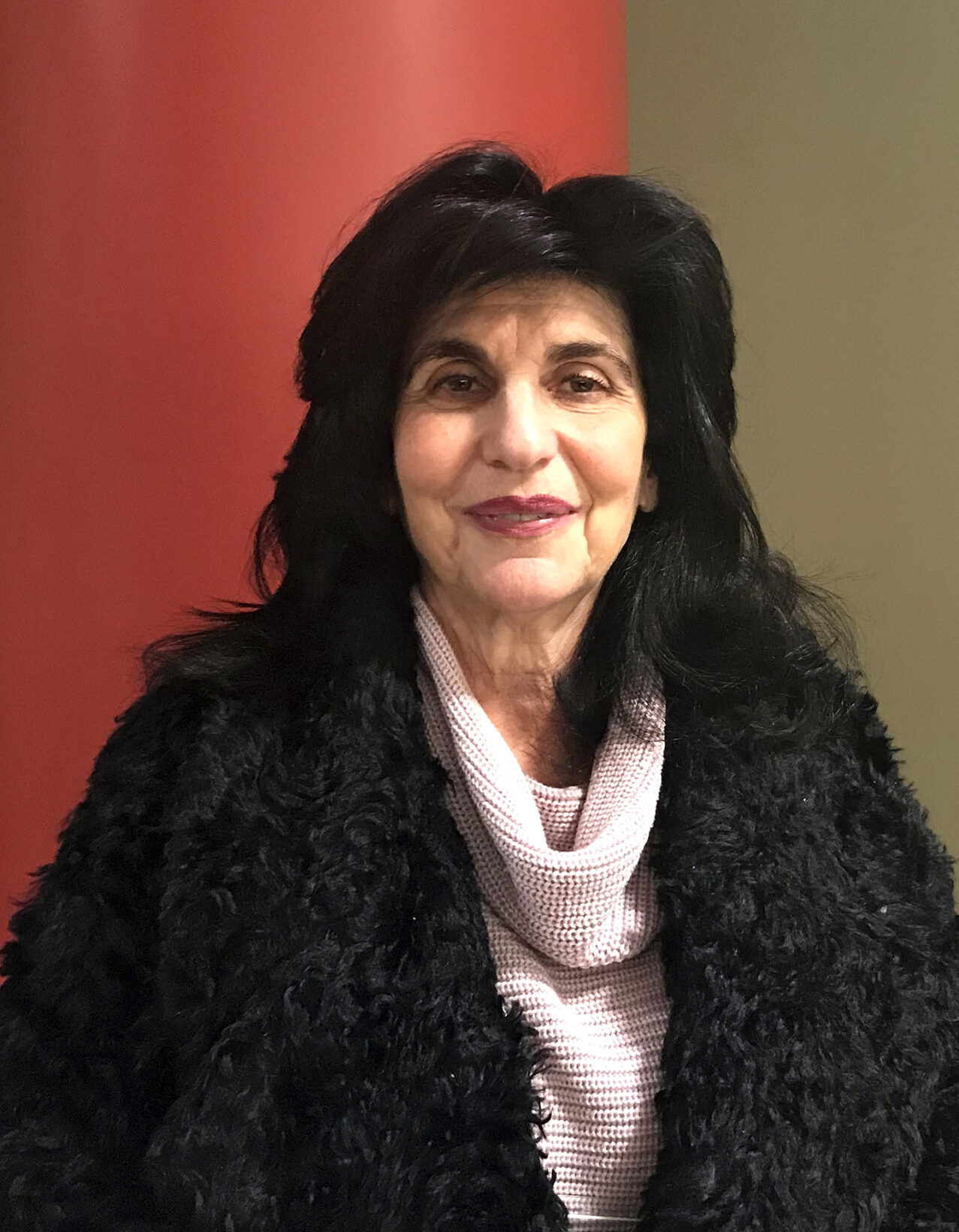
This concept resonated with Rita Frydman, Gynecologist-Obstetrician at the Jewish General Hospital who plans to integrate more simulation into her teaching and team training. “I want to apply these principles to create constructive learning experiences for the students who are working in high-risk environments, so that they can better understand and evaluate without feeling judged,” she explains.
Farhan Bhanji, Pediatric Critical Care Physician at the Montreal Children’s Hospital and Professor of Pediatrics in the Centre for Medical Education at McGill University, chaired the Sim FacDev Collaborative that brought together a team of McGill’s top experts in medical simulation to develop these simulation-based faculty workshops. “I want to thank all of my colleagues for their efforts in making these workshops happen,” he said. “I hope that we can sustain these sessions to support as much of our McGill simulation community as possible. It really is great fun to work and learn with such dedicated and intelligent colleagues—both the instructors and the participants.”
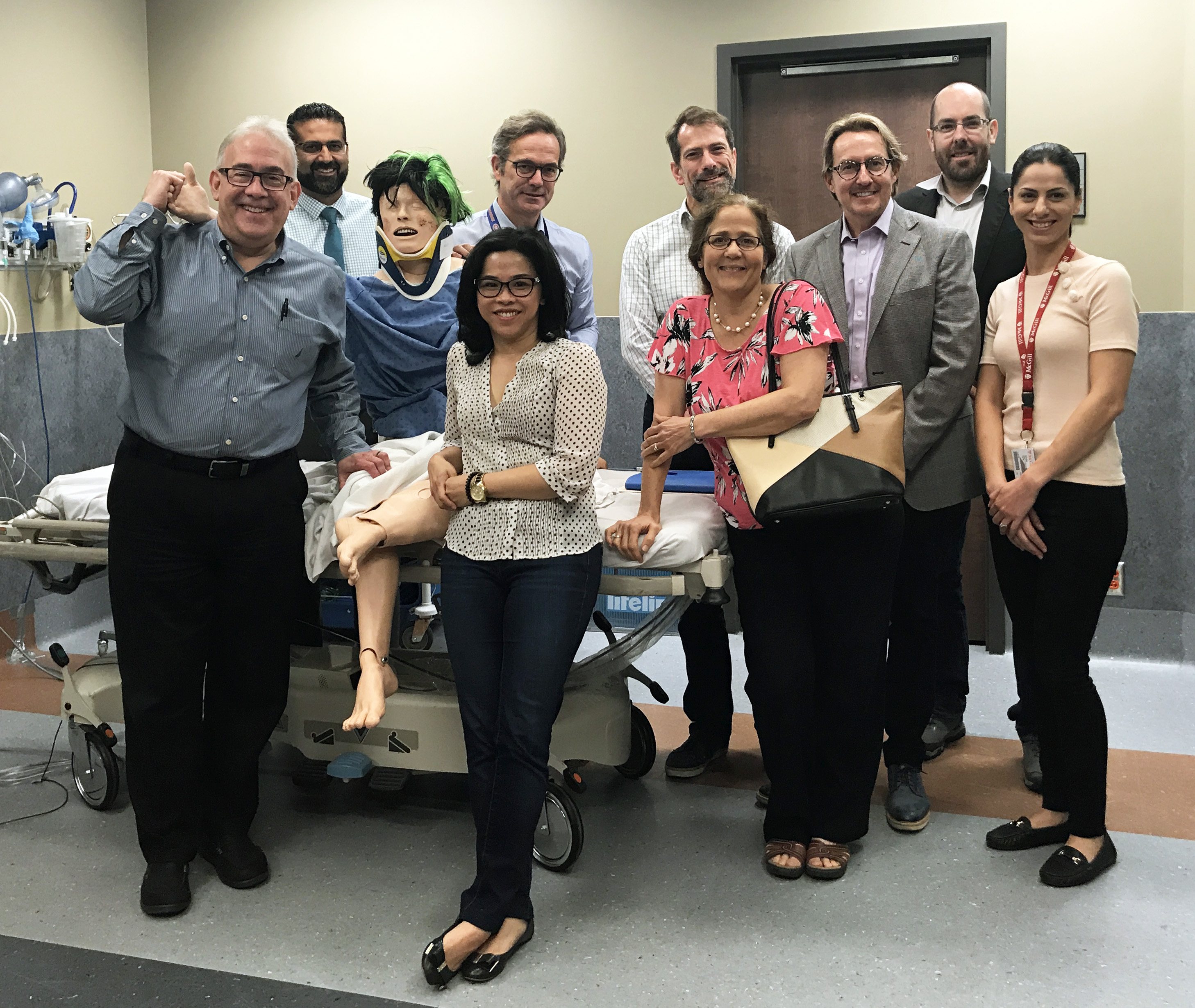
Faculty development planning group and facilitators for the workshop on September 19, 2017
Left to right: Ronald Gottesman, Farhan Bhanji, Kevin Lachapelle, Lily Nguyen,
Richard Gosselin, Miriam Boillat, Mark Daly, Hugo Marchand and Leila Zahabi
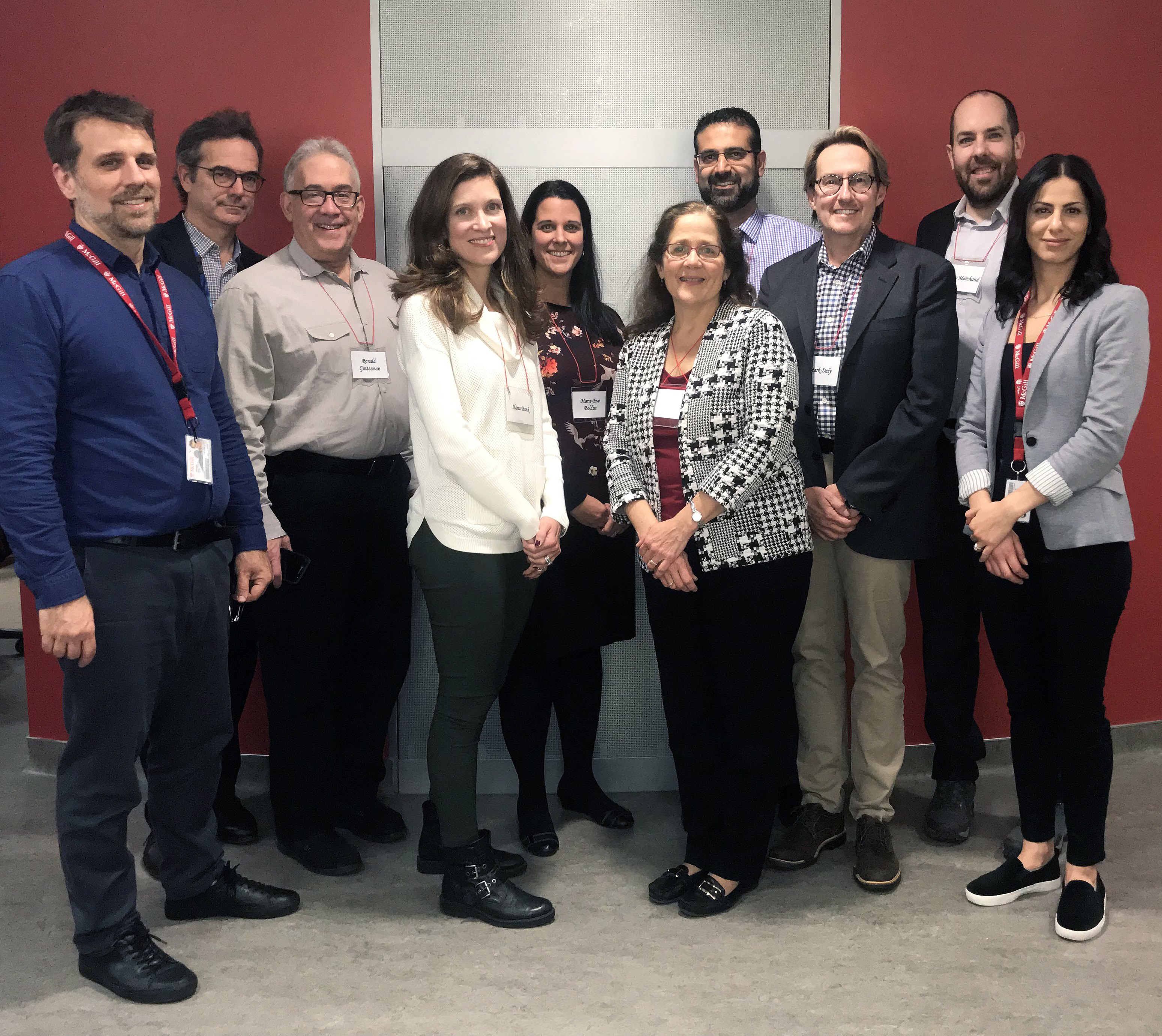
Faculty development planning group and facilitators for the workshop on November 23, 2017
Left to right: Loic Simard-Villeneuve, Kevin Lachapelle, Ronald Gottesman,
Ilana Bank, Marie-Eve Bolduc, Miriam Boillat, Farhan Bhanji, Mark Daly,
Hugo Marchand, Leila Zahabi
December 15, 2017
